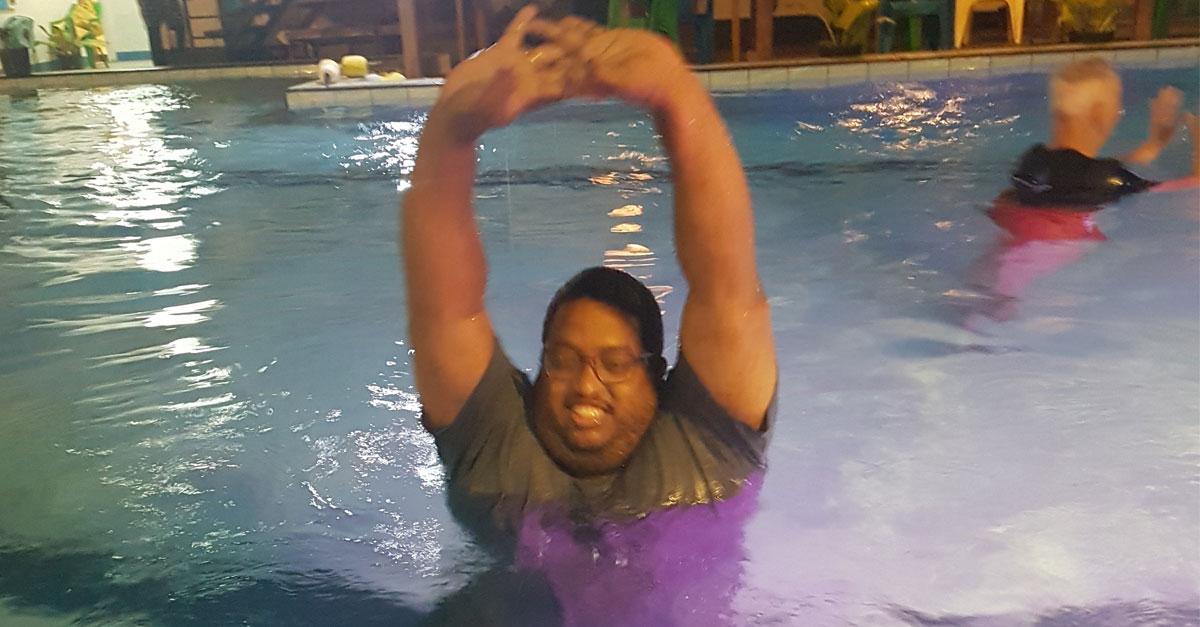Sheldon Simson was diagnosed with severe hemophilia A when he was three months old. Suriname is a developing country, and he grew up with limited medical resources to help manage his bleeds. As a result, over his childhood he developed permanent joint damage to his ankles, knees, and elbows. Now nearly 40, he relies on crutches and a mobility scooter to work and go about his daily activities.
Things changed dramatically for Sheldon when the WFH Humanitarian Aid Program began providing donated factor to his country in 2021. The improvement to his quality of life was significant: he went from having rare access to factor to being able to begin a prophylactic treatment regimen. Simson says he saw an immediate drop in bleeds when he began prophylaxis: in four months, he has only had two bleeds.
It is difficult for me to find words to express my gratitude. I have gone from planning for a permanent wheelchair to looking out for more physical activity to help strengthen my joint muscles with goals of maintaining a healthy body weight. I am forever grateful to the WFH for the amazing work that this organization does. Dank je wel and gran tangi! [Thank you in Dutch and Surinamese Creole, respectively]
—Sheldon Simson
Going from managing acute bleeds to being able to prevent them from ever happening was something Simson had never dreamed could be possible. Now, instead of being worried about getting a bleed, he’s able to work on his physical strength—he even does aqua fitness twice per week.
Simson’s example is proof that change is almost immediate even at the initial stages of WFH Humanitarian Aid Program work in a country. This only makes the Program’s long-term view in the countries it operates in—and its goal of sustainable care—all the more hopeful.
Almost 800,000 IUs of factor were donated to Suriname through the WFH Humanitarian Aid Program in 2022. To find out more about the WFH Humanitarian Program, please click here.
About the WFH Humanitarian Aid Program
The WFH Humanitarian Aid Program improves the lack of access to care and treatment by providing much-needed support for people with inherited bleeding disorders in developing countries. By providing patients with a more predictable and sustainable flow of humanitarian aid donations, the WFH Humanitarian Aid Program makes it possible for patients to receive consistent and reliable access to treatment and care. None of this would be possible without the generous support of Sanofi and Sobi, our Founding Visionary Contributors; Bayer, CSL Behring and Roche, our Visionary Contributors; Grifols, our Leadership Contributor; and Takeda and Japan Blood Products Organization, our Contributors. To learn more about the WFH Humanitarian Aid Program, visit www.treatmentforall.org.













